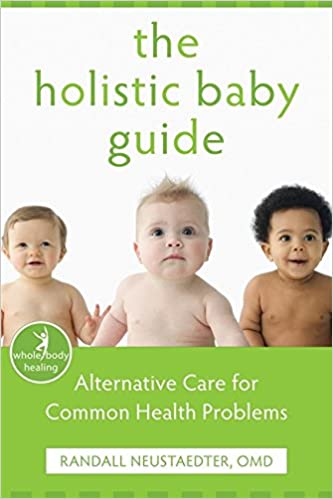In this blog post, Kelly Dorfman, MS, LND writes about non-pharmaceutical ways to address acid reflux and GERD in children.
Pediatric Gastroesophageal Reflux Disorder (GERD) is a diagnosis I have encountered in my practice with increased frequency. Yet, little is written about it. Frequent vomiting is the most obvious indicator, but other symptoms of acid reflux in children include:
- Irritability (from esophageal pain during or after eating)
- Poor sleep
- Food intolerance
- Refusing foods (or oral intolerance)
- Difficulty swallowing
- Gagging, choking (especially with liquids)
- Sour breath
What Is Reflux?
Although many babies spit up, are irritable, and sleep poorly, GERD is present only when symptoms persist and become severe. The stomach contents consistently back up into the esophagus, and the acid and food combination can burp up the back of the throat or be projected through the mouth or nose.
Most professionals believe that an improperly functioning sphincter valve at the top of the stomach is the cause of GERD. The valve pops open too easily when the child consumes an irritant, overeats or just bends over. GERD treatment is based on the that assumption. What if that thinking were incorrect?
How Is GERD Traditionally Treated?
Because 95% of children outgrow GERD by age two, traditional treatment usually aims at controlling symptoms until the body matures.
- Parents are advised to change body position and use gravity. These measures help keep pressure off the valve by keeping the baby calm and upright during and at least an hour after eating.
- If this benign correction does not work, thickening the formula can make it harder to spit up. Sometimes parents are advised to add rice cereal to the bottle, although the digestive system may not ready for starch before six months of age.
- If thickened formula fails, doctors sometimes prescribe antacids. Mild antacids, such as Zantac and Pepcid, suppress stomach acid, which is critical for digestion, but corrosive to the esophagus. Stronger drugs like Prilosec and Prevacid completely block acid production. While acid neutralization can dramatically help GERD symptoms, it can also have lasting effects on digestive system development and balance.
- The next step is anti-reflux medication. Some, such as Urecholine and Reglan, keep food moving along and may improve muscle tone in the digestive tract. However, questions remain about the risk of using such drugs with babies, since Propulsid, a very popular anti-reflux drug, was taken off the market in 2000 because of side effects. Urecholine, an older, safer drug, has been used successfully in the treatment of autism.
How Would Treatment Change If We Made Different Assumptions? What If:
Some babies have poorly developed immune systems.
Then the only way their bodies can reject irritating food is to throw it up. The gut activated lymphatic tissue (GALT), in the stomach, can respond instantly to a harmful substance. This healthy reaction helps rid the body of unwanted irritants. Maybe the reason that so many children adopted from overseas develop GERD is the failure of their immature systems to adapt to new foods they are not able to process.
Solution: Adjust feeding differently. If the mother is breastfeeding, she should try an elimination diet starting with dairy foods. If a baby is formula-fed, consider a predigested, hypo-allergenic formula. Several types may need to be tried until one sits well.
Some babies may have immature digestive systems.
These infants may need more support before their stomachs are ready for food. Because babies must eat, their systems have little time to rest and repair. Rather than suppress digestion with drugs or stress it with cereals, why not add nutrients that can soothe and build the distressed system?
Solution: Use digestive support suitable for babies. Some with which I have had great success are:
- Mastic gum. This ancient treatment, used for gastritis and ulcers associated with Helicobacter pylori bacteria overgrowth, kills H. pylori without reducing normal stomach acid. Consider Allergy Research’s, Mastica. Half of a 500 mg. capsule one to two times per day is a baby dose.
- De-glycyrrizinized licorice root (DGL). This is an herb long associated with soothing and tonifying the digestive system. The glycyrrhizic acid is removed in DGL because it is thought to stimulate the adrenal glands and possibly raise blood pressure. Nature’s Plus produces a DGL tincture without alcohol. Consider five drops once or twice per day.
- Bromelain. This is a gentle digestive enzyme found in pineapple. Stronger enzymes may overwhelm developing digestive tracts. A small dose of 250mg once or twice per day may support digestion. Pressed pills are easy to crush and place in liquid. If it sits too long in a bottle, the contents may curdle.
Note: Always try one item at a time and only with the input and approval of a qualified medical professional.
Evaluate muscle tone.
Visit an occupational therapist who can suggest abdominal strengthening exercises that can help with hypotonia. When dealing with reflux, think support, not suppression.
About Kelly Dorfman MS LND
Kelly Dorfman is one of the world’s foremost experts on using nutrition therapeutically to improve brain function, energy and mood. Kelly’s special talent for integrating information from many sources and finding practical solutions has made her a popular speaker and workshop leader. She lectures extensively and is a member of Platform (formerly the National Speakers Association) and has been featured on numerous television programs including CNN’s American Morning.
Kelly’s award winning book, Cure Your Child With Food: The Hidden Connection Between Nutrition and Childhood Ailments (formerly known as What’s Eating Your Child) was given rave reviews by Publishers Weekly and the Washington Post.

As a go-to expert on nutrition issues, Kelly is frequently interviewed and quoted in the media. She has been featured in articles in The Wall Street Journal, Parade, Bethesda magazine, Living Without magazine, and the Huffington Post.
Kelly holds a master’s degree in nutrition/biology and is a licensed nutrition dietitian. She is a co-founder of Developmental Delay Resources, which has merged with Epidemic Answers. You can find out more about Kelly and her practice at kellydorfman.com
Still Looking for Answers?
Visit the Epidemic Answers Practitioner Directory to find a practitioner near you.
Join us inside our online membership community for parents, Healing Together, where you’ll find even more healing resources, expert guidance, and a community to support you every step of your child’s healing journey.




